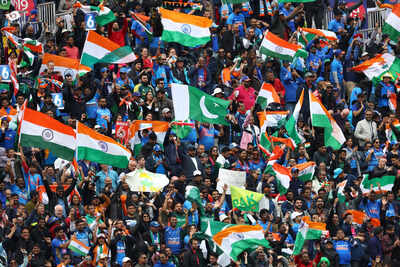ARTICLE AD BOX

India will take on Pakistan in the upcoming Asia Cup (Photo by Michael Steele/Getty Images)
India and Pakistan are set to face each other in the Asia Cup on September 14 in Dubai, sparking controversy due to recent tensions between the nations.The controversy intensified following a terror attack in Jammu and Kashmir's Pahalgam on April 22, where 26 tourists lost their lives to Pakistan-sponsored terrorists.
Former cricket players and fans have expressed their opposition to the match and suggested boycotting it.The central government updated its policy in August regarding Indian athletes competing against Pakistani athletes. The new policy permits India to participate in multinational events while maintaining restrictions on bilateral competitions."So far as the BCCI's view is concerned, we have to follow whatever the central government formalises.
Recently, our policy, which is in place, regarding India's participation in any multinational tournament or international tournament, there is no restrictions imposed by the central government whether we play any of the countries which are not on good terms with India. So India have to play all the matches in any multinational tournament," Saikia told ANI.Go Beyond The Boundary with our YouTube channel. SUBSCRIBE NOW!"As the ICC Cup is a multinational tournament involving the countries of the Asia continent, so we have to play.
And also, for any ICC tournament, when there is a country which is not on friendly terms with India, we have to play in the international tournaments. So far as bilateral is concerned, we are not going to play with any of our hostile countries."BCCI Secretary Devajit Saikia emphasized that the Indian cricket board will continue following government policies. He also explained the potential consequences of boycotting matches against Pakistan in global tournaments."So we are following the policy framed by the government of India, the Youth and Sports Development Department. So, the policy we are following we are totally in alignment with the policy framed by the central government. And for that, BCCI will have to do it. And we are very happy to follow the policy. And that policy is very nicely done, taking into consideration not only cricket, but also other games," he added."If you think that if India boycotts any of the multinational tournaments hosted by the Asian Cricket Council or the ICC, or if you take any other sports, suppose a FIFA tournament or an AFC tournament or any other, suppose, athletic tournament involving multinational teams, and India is not playing with a particular country, then there may be sanctions against the Indian Federation."Saikia used an example involving Athletics Federation of India and Olympic medalist Neeraj Chopra to illustrate the potential impact of such decisions."That will actually go against the players of that particular event. Suppose, taking an example, suppose in athletics, India is not playing a particular tournament because we have to play with a player belonging to a hostile country. In that situation, if any sanction comes with the Indian Athletic Association, then take the example, suppose Neeraj Chopra, he won't be able to participate in any international event.
So that will be detrimental to the interests of the players," he further stated."I am sure the government of India has taken into consideration all these factors while formulating the policy that allows India to participate, not only in cricket but also in other games, in various multinational tournaments."



.png)
.png)
.png)
















 2 hours ago
3
2 hours ago
3







 English (US) ·
English (US) ·